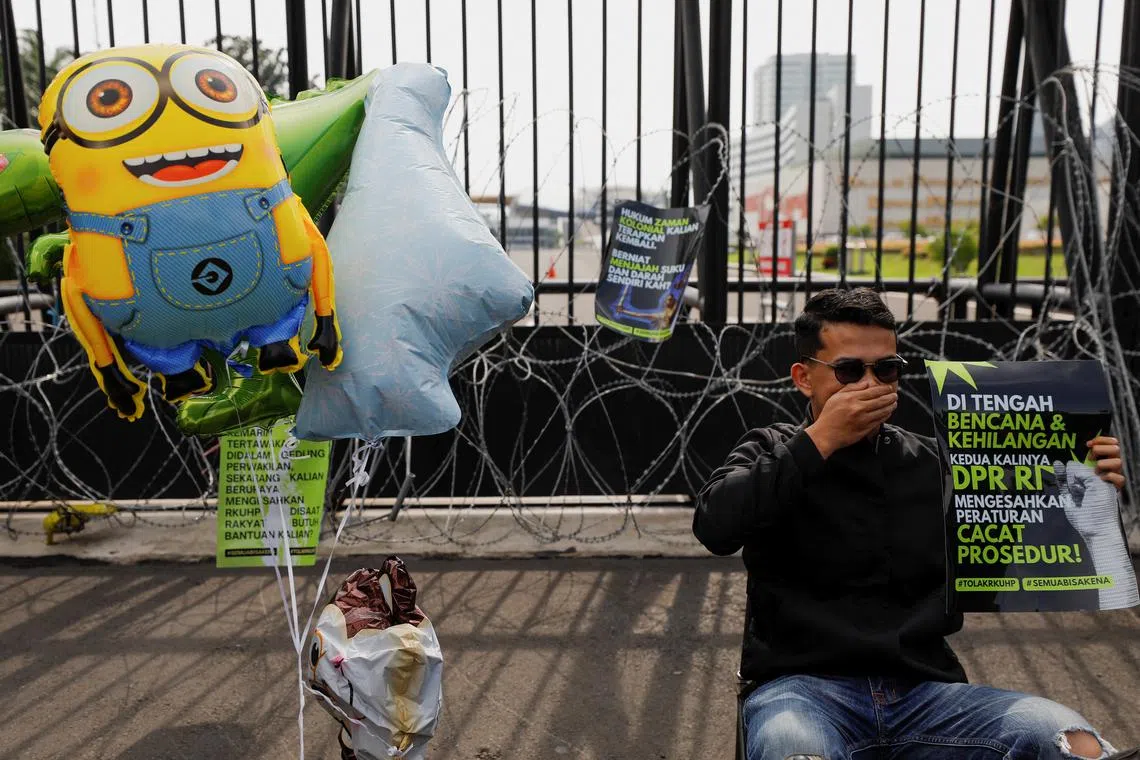Indonesian Parliament approves legislation to outlaw sex outside marriage
Sign up now: Get insights on Asia's fast-moving developments

A man protesting against the new legislation outside the Indonesian Parliament buildings in Jakarta on Tuesday.
PHOTO: REUTERS
JAKARTA – People who have sex outside marriage in Indonesia may soon end up in jail after the country’s Parliament ratified changes to its colonial-era criminal code on Tuesday. The changes also include banning criticism of the president and state institutions.
The latest version of the code, known as KUHP, is expected to take effect within three years.
People who have premarital or extramarital sex face up to a year in prison but the charges must be initiated by close relatives, such as a spouse, parent or child. Those who cohabit outside marriage face six months in prison.
Insulting a sitting president will be a crime, with offenders facing up to three years in prison. The complaint, however, must be filed by the president himself.
At a press conference after Tuesday’s plenary session, Law and Human Rights Minister Yasonna Laoly said that public opinion had been taken into account in the drafting of the legislation.
He added: “It is not possible for the criminal code to accommodate 100 per cent (of all the wishes), but I would like to emphasise that the government has no intention to silence the critics.”
The government was initially set to pass the Bill in September 2019, but backed down following pushback from the public who slammed it as draconian
But even the watered-down version has not doused opposition from civil society groups. The Alliance of Independent Journalists (AJI) has called on the House of Representatives and the government to postpone the passage of the Bill “as the set of laws can eradicate the freedom of the press and democracy in Indonesia”.
“AJI will continue to voice this until the problematic provisions are dropped,” it said in a statement.
In a meeting chaired by President Joko Widodo on Nov 28, Deputy Minister for Law and Human Rights Edward Omar Sharif Hiariej said the insult to the government charge is limited to the presidential institution, while the insult to state institutions is limited to legislative bodies, including the House of Representatives, the Constitutional Court and the Supreme Court.
He said there are strict guidelines that distinguish between what constitutes a criticism of the president or state institutions and what constitutes an insult.


